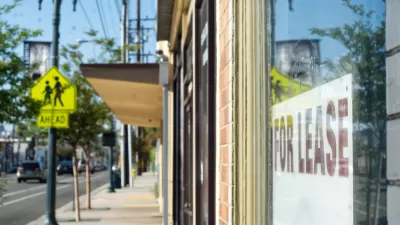Here are six U.S. cities where small companies are thriving.

For small businesses, it can be hard to stand out in major cities. Although, with the right market conditions, some companies are having more luck. Here are six U.S. cities where small companies are thriving.
1. Raleigh, North Carolina
A quality labor market makes Raleigh a popular destination for small businesses. The city has multiple research facilities and is only a short drive from the Research Triangle Park (RTP). RTP is affiliated with three major universities: Duke University, The University of North Carolina, and North Carolina State University.
Raleigh has a lower national unemployment rate than the national average. One reason for this may be that people in the area tend to be more highly educated. In fact, 40% of the population over 25 holds at least a four-year degree, which makes it easier for organizations to recruit top talent.
Another advantage for companies is the low corporate tax rate of 2.5%. This is especially helpful for startup businesses that have a lower budget. With less money going to taxes, they can spend the extra savings on marketing strategies.
With higher-educated people and growth opportunities, Raleigh is a great place for businesses.
2. Austin and Round Rock, Texas
Austin has diverse art and music scenes as well as a unique culinary cultures—and is thus the perfect place for all sorts of niche companies. For those looking to get into the restaurant industry, for instance, Austin is a good place to consider. The city has numerous food trucks serving a wide range of food—from pizza to smoked meats. El Primo is one popular example, known for its tasty tacos, burritos, and tortas.
Along with its restaurants, Austin is home to many business school graduates. Companies can attract talent to expand their business. Also, since we live in the age of digital work, IT skills are essential. According to the tech town index, Austin ranked number one for IT professionals in 2019.
Small businesses can also enjoy financial relief with the city’s lower cost of living. The cost of living is 3% lower than the national average. The city also doesn’t have a personal income tax, relieving financial burdens for startup companies.
3. Miami, Florida
This city is known for its booming art scene and population. Miami has around 478,251 people as of 2021. With a thriving town, business owners can recruit more talent and reach a broader target audience.
Rent may be more costly in this area, but having no income tax can help save money. Businesses can also cut costs in other ways. To lower energy expenses for rental spaces, they can install commercial window film, which also reduces eyestrain and improves property security.
Small companies are also moving to Miami for their expansion opportunities. It was rated the number one city for small business growth. This is likely because the city is a gateway for Latin American importers and exporters. It’s also a popular tourist and Spanish-language media destination.
4. Tulsa, Oklahoma
Tulsa is an excellent place for businesses looking to hire remote employees. In 2019, Tulsa Remote offered $10,000 to a select group of remote workers to move to Oklahoma. The initiative helped recruit more talent to the area. It also allows smaller businesses with less office space to hire more employees.
Plus, after the pandemic, many people prefer to stay working remotely. With advanced technology, businesses are learning how to better communicate with their employees.
Tulsa is also a city for entrepreneurs with a growth mindset. There are various industries, such as aerospace and IT, for employers to get involved in. With so much more to learn within these fields, small businesses have a chance to make an impact.
Along with growth opportunities, Tusla also offers small businesses certain financial incentives. Employers may be eligible to receive up to 5% cash back for launching or expanding within the city, which allows companies to invest in larger business ventures.
5. Boulder, Colorado
For businesses selling adventure equipment, Boulder is a great place to expand. This city’s natural beauty attracts tons of nature lovers, and companies that focus on sustainability can receive free technical support: Partners for a Clean Environment (PACE) provides free expert guidance to help organizations discover more environmentally friendly practices.
Another key factor for small businesses is that Boulder has a good startup economy. In fact, 96% of the 7,000 employers in Boulder have fewer than 50 workers. Some of these startups are now fortune 500 companies, such as Agilent technologies.
6. Minneapolis, Minnesota
Minneapolis is known for its larger corporations, but a small business community is also growing in this city. The small company scene ranges from eco-friendly restaurants to pet groomers. Small organizations also benefit from the lower cost of living compared to nearby cities, like Chicago.
Transportation is one of the main factors causing the difference. Transportation costs are 20% cheaper in Minneapolis. Lower transportation costs are especially beneficial for business owners in the city.
Best Locations for Small Business Owners
When it comes to starting or expanding your business, location is critical. For small businesses, growth opportunities and financial incentives can help. This mix of factors explains why small companies are thriving in the six U.S. cities listed above.

Maui's Vacation Rental Debate Turns Ugly
Verbal attacks, misinformation campaigns and fistfights plague a high-stakes debate to convert thousands of vacation rentals into long-term housing.

Planetizen Federal Action Tracker
A weekly monitor of how Trump’s orders and actions are impacting planners and planning in America.

In Urban Planning, AI Prompting Could be the New Design Thinking
Creativity has long been key to great urban design. What if we see AI as our new creative partner?

How Trump's HUD Budget Proposal Would Harm Homelessness Response
Experts say the change to the HUD budget would make it more difficult to identify people who are homeless and connect them with services, and to prevent homelessness.

The Vast Potential of the Right-of-Way
One writer argues that the space between two building faces is the most important element of the built environment.

Florida Seniors Face Rising Homelessness Risk
High housing costs are pushing more seniors, many of them on a fixed income, into homelessness.
Urban Design for Planners 1: Software Tools
This six-course series explores essential urban design concepts using open source software and equips planners with the tools they need to participate fully in the urban design process.
Planning for Universal Design
Learn the tools for implementing Universal Design in planning regulations.
Gallatin County Department of Planning & Community Development
Heyer Gruel & Associates PA
JM Goldson LLC
City of Camden Redevelopment Agency
City of Astoria
Transportation Research & Education Center (TREC) at Portland State University
Jefferson Parish Government
Camden Redevelopment Agency
City of Claremont






























